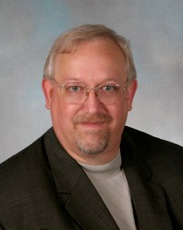What is Christian Counseling?
Dr. Dale Doty

Dr. Dale Doty, M.S. W., PH.D., is the Co-Director and Founder of Christian Family Institute in Tulsa, Oklahoma, a Licensed Marital & Family Therapist, and a Licensed Clinical Social Worker.

The dictionary defines counseling as the active exchange of opinions or ideas, or the process of advising or giving guidance solicited from a knowledgeable person. The field of counseling today has a very mixed history. Counseling has been taking place for thousands of years. We know in ancient times from biblical history counseling was conducted by spiritual and religious leaders. Christian churches practiced what we came to call counseling. The Bible teaches us to “admonish the unruly, encourage the timid, help the weak, and be patient with all men” (I Thes. 5:14). This is not only counseling, it is what we now call “differential therapeutics,” or applying specific treatment following an accurate and careful diagnosis.
The scientific community of psychologists and psychiatrists have been writing about counseling and psychotherapy since the late 1800’s. Much of the field of secular psychology and psychiatry dates back to the early writings of Sigmund Freud. Freud was clearly antagonistic toward religious faith, and did not hold to a world view that was compatible with the gospels. Freud went so far as to say that religion was the “universal obsessional neurosis.” Since Freud’s writings, the Christian church has struggled with how to approach the field of psychology and psychiatry.
A variety of approaches have developed as Christians wrestle with whether or not psychology and Christian faith are compatible with one another. Worthington (1991) suggested that there were four possible positions that counselors might take regarding the integration of counseling. The first category he calls “across the gap.” In this approach therapists who do not value religious faith choose to ignore it, and see the religious faith as harmful to clients. The second position is the “collaborative approach.” In this approach therapists who are not personally religious are committed to respecting religious faith and values in their clients. The third position represents those who are religious and have a faith orientation but who have been trained in secular approaches and were taught that dealing with religious issues were irrelevant or inappropriate in counseling. The fourth position is the “conjoint” position in which therapist who personally hold to a religious value system are committed to dealing with the religious commitment and spiritual issues of their clients.
Models of Integration
In a classic article written for Christianity Today in 1975, Gary Collins suggested that today’s Christian counselors fall into five categories. The first category Collins called “the main stream.” Main stream pastoral counselors generally have taken Clinical Pastoral Education training (CPE). The CPE approach takes a pastor with a theological education through an essentially secular training program in counseling. The clinical pastoral education movement has historically been theologically liberal and somewhat antagonistic toward conservative evangelical theology (Collins, 1975).
The next category that Collins outlined were the “evangelical pastoral counselors.” The most outspoken of such counselors is Jay Adams, professor of practical theology at Westminster Seminary. Adams advocates Biblical Counseling, in which only the Bible is used to support a counseling approach that is primarily educational and confrontive.
The third category of Christian counselors are the “Christian professionals.” Examples of the Christian professionals would include Clyde Narramore (considered to be the father of Christian counseling), James Dobson, Bruce Narramore, Frank Minirith and Paul Meier, and Gary Collins. The Christian professionals have been trained and have received degrees and credentials in the secular counseling approaches, but who also have a strong commitment to biblical evangelical theology. Each of these counselors have developed a model for integrating their knowledge and skills from the field of psychology with biblical truth.
The fourth model Collins defined were the “theoretician researchers.” The theoretician researchers are those who have taken a scientific, scholarly and research approach. These are generally university professors who are in the process of developing and testing theory.
The fifth and final category that Collins outlined are the “evangelical popularizers.” The evangelical popularizers would include Bill Gothard, Tim LaHay, Charlie Shedd, and Norman Wright. The evangelical popularizers produce useful but simplistic self help material for the lay public.
Since the writing of Collins article in 1975, all five categories are alive and well. Evangelicals have increasingly steered away from the clinical pastoral education movement. Seminaries have strongly embraced the evangelical pastoral counseling and the Christian professional movement in counseling. Many seminaries have developed masters and doctoral programs integrating both theology and the practice of psychology and counseling. Christian graduate schools have flourished with strong enrollments in the areas of psychology, counseling, and marriage and family therapy. In spite of the increase in Christian counseling, a number of authors have been critical of whether or not Christianity and psychology are compatible at all.
Lawrence J. Crabb (1977) suggests that Christians have taken one of four positions: The first position is referred to as “separate but equal”. The Bible and theology are considered valid in the areas in which they speak, and psychology is considered valid in the area in which it speaks. The separate but equal counselor may switch back and forth between psychology and theology. An attempt is made to separate the two disciplines and keep them separate.
The second approach is the “tossed salad” approach. Crabb suggests that this approach is like a salad bowl in which a variety of ingredients are thrown into the bowl and tossed about. The problem with the tossed salad approach is that psychological notions are often accepted uncritically and without an understanding of the conflicting world views (i.e., humanism, existentialism, modernism, etc.) which are often represented in psychology. Consequently a number of unbiblical ideas may creep into this counseling.
The third category that Crabb refers to is the “nothing buttery.” In this approach the Christian counselor accepts nothing but the scripture as the basis for Christian counseling. The writing of Jay Adams would fall in to this category. Adams suggests that psychology has nothing to offer the Christian counselor, and psychology is always in conflict with biblical ideas. If one is true to this position there is never a need to study any counseling approaches, medicine or psychology.
The fourth approach and the approach that Larry Crabb takes is the position he calls “spoiling the Egyptians.” In the spoiling the Egyptian’s position the Christian counselor is first thoroughly grounded in the Word of God. Just as God made provision for the Israelites carried out of Egypt the spoils the Christian counselor critiques the findings of modern psychology and takes from them tools which are consistent with our biblical perspective. The Word of God is absolute in authority, and the only truly and fully reliable source of knowledge. Psychology on the other hand is a field that attempts to use the scientific method to investigate a variety of man’s problems, and seeks to determine what works in helping people resolve their problems. This approach recognizes that Scripture is “ALL TRUTH,” but may not contain “all truth.” Knowledge exists beyond the scripture about many subjects including psychology, medicine, family life, etc. The Christian counselor operating from this approach takes what is useful and consistent with scripture while discarding the rest.
The Christian Family Institute Model
Basic Assumptions. Christian Family Institute counselors have worked together to compare ideas about the integration of psychology, and marriage and family therapy with biblical theology. Counselors recognize that Christian counseling must first start with a Christian who has been brought to new life in Christ. Prior to our conversion we were dead in our sins and transgressions (Eph. 2:1). “But because of His great love for us, God, who is rich in mercy, made us alive in Christ even when we were dead in our sins and transgressions” (Eph. 2:4). As counselors we recognize that spiritual things can not be understood unless one is born of the Spirit of God. To the non-Christian, spiritual things seem foolish (I Cor. 2:14). After one has become a Christian and begins to grow in faith and a knowledge of God’s Word, our entire value system is shaped by our Christian faith, our bible study, and our life of prayer.
As we grow as Christians, all of our principles are transformed by scripture. Whatever other wisdom we might find useful from psychology and other sources must be judged by scripture.
At Christian Family Institute, counselors are called to counsel. Counseling is not a profession unrelated to our faith. Just as ministers are called to the ministry, Christian counselors are called to the ministry of counseling. The scripture indicates that each Christian is given spiritual gifts for the purpose of ministry to the Body of Christ (I Cor. 12:7). For Christian counselors, spiritual gifts will be manifested in the style of counseling that the counselor provides.
As Christian counselors we recognize that all people have a need for Christ. As Christian counselors we also recognize that God’s Word is absolutely reliable and authoritative in all it speaks to, particularly matters of faith, lifestyle, and morality. Christian counselors derive their sense of morality from God’s absolute Word. In practice we are committed to loving all persons whether or not they are Christians.
Human beings function and malfunction as a result of a complex and seamless interaction between biological, psychological, social, and spiritual forces. Malfunction in any one of these areas produces a ripple effect. If a person has a cavity in one tooth, the pain may radiate to many surrounding areas. So also do symptoms spread in any of the bio-psycho-social-spiritual dimensions.
As Christian counselors we also recognize the value of psychology, marriage and family therapy, counseling, psychiatry, and medicine. Persons who consult with us are often concerned about problems these disciplines may address. For one client the issues that bring them to counseling may be of a moral nature involving guilt and confusion. The next client that comes to us may be experiencing the consequences of sin in their life. The next person who comes may have been sinned against by others who were abusive and are attempting to recover from the damage that was done to their life. The next client who comes to counseling may be experiencing psychological symptoms related to a genetic or medical condition. As Christian counselors we depend on the Holy Spirit as well as our training in these disciplines in order to be effective in helping people with their concerns.
This approach would be classified by Collins (1975) as a “Christian Professional” model. We would classify it as a “spoiling the Egyptians” approach according to the Crabb (1977) model.
This article is designed to provide accurate and authoritative information in regard to the subject matter covered. It is shared with the understanding that neither the author nor Tony Cooke Ministries is engaged in rendering legal, accounting, psychological, medical or other professional services. Laws and regulations are continually changing, and can vary according to location and time. No representation is made that the information herein is applicable for all locations and times. If legal advice or other expert assistance is required, the services of a competent professional person should be sought.
© Tony Cooke Ministries, Inc. All Rights Reserved

